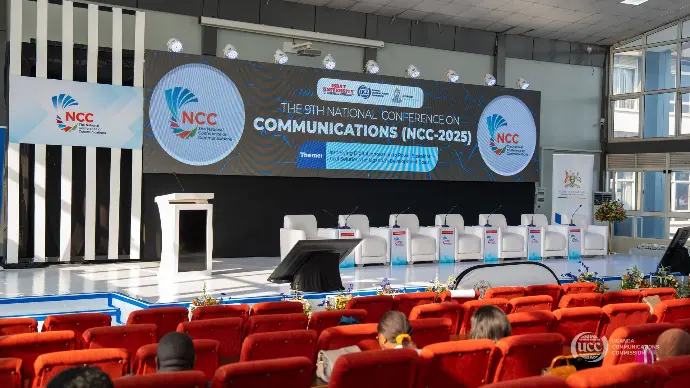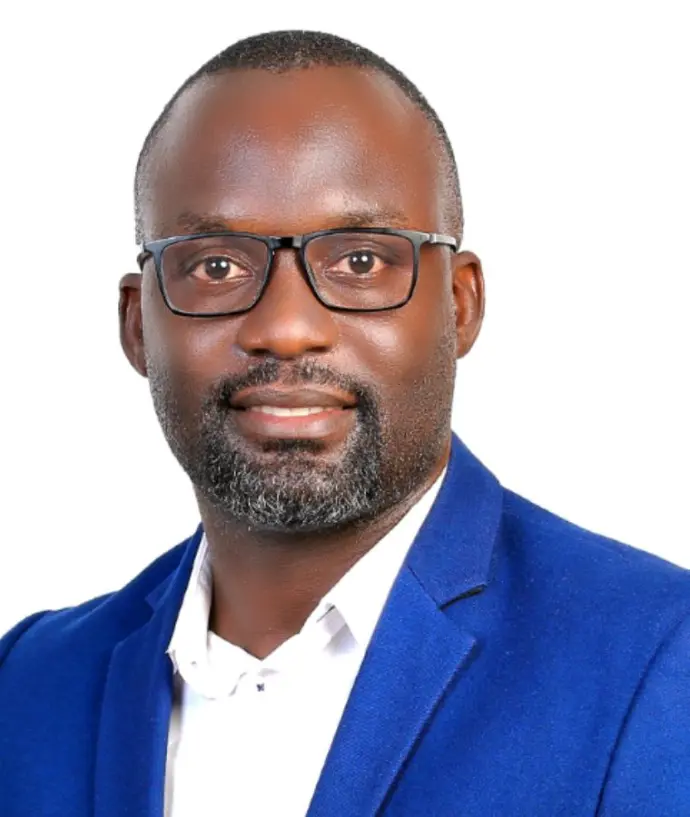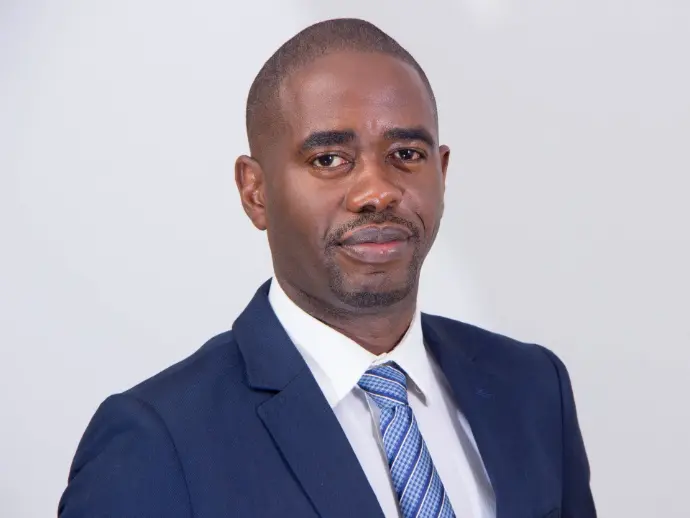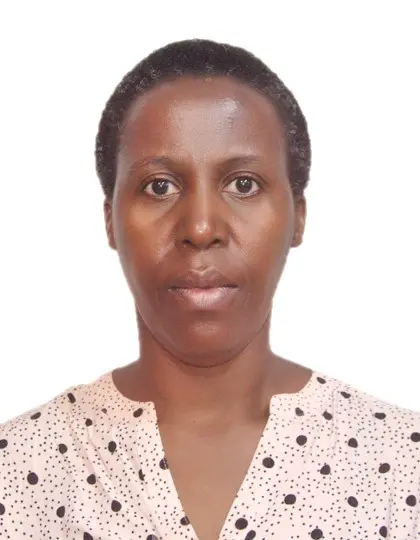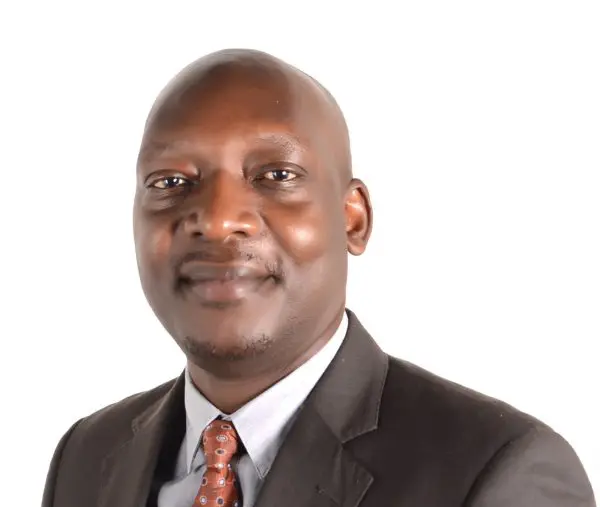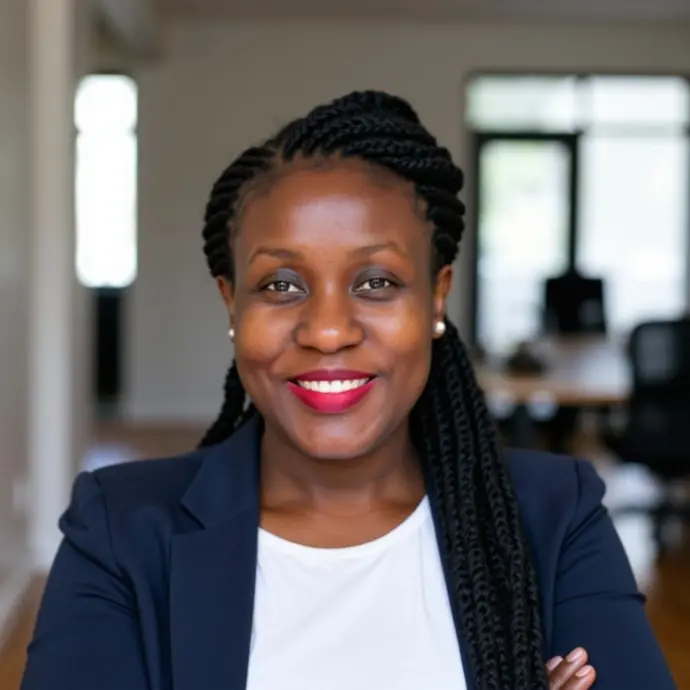Kampala – 3rd October 2025
By the Secretariat, NCC 2025
The 9th National Conference on Communications (NCC 2025), hosted by ISBAT University and Gulu University held on 2–3 October 2025 at the National ICT Innovation Hub in Nakawa, Kampala, convened an assembly of government officials, academia, industry players and young innovators under the theme “Harnessing Digital Innovation to Power Sustainable Local Solutions for Uganda’s Development Goals.”
The conference was designed as more than a traditional academic event: it aimed to serve as a bridge between policy, research, innovation and community impact. It registered over 500 participants, featured more than 50 expert speakers across 12 technical tracks, and included innovation and research led showcases, student club competitions and networking sessions.
Key takeaways from Policy makers
The conference’s opening ceremony was honored by the presence of the Guest of Honor, Hon. Dr. Chris Baryomunsi, Minister of ICT and National Guidance, who in his speech emphasized the transformative power of digital innovation to address everyday challenges, from agriculture, health and education to governance and inclusion. He affirmed government support for regulatory and enabling frameworks that foster innovation and equitable access. As he said: “By leveraging innovation, we can enhance service‑delivery, create employment, and empower communities with practical and scalable solutions tailored to local needs.”
The Executive Director UCC, Hon. George William Nyombi Thembo addressed the regulatory‑enabling role of UCC in Uganda’s digital ecosystem, underscoring initiatives such as the national testbed, ICT club funding and academia–industry linkages. He expressed UCC’s commitment to promoting research and innovation within the sector and implored Industry players and the academia to join in the cause to achieve a fully digitized Uganda.
Keynotes from the Industry Players
Ms. Sylvia Wairimu Mulinge, CEO of MTN Uganda, in her keynote address on Day 1 of the conference, highlighted how telecom operators, innovation hubs and universities must collaborate to deliver connectivity, scale local solutions and reach underserved communities. Ms. Mulinge emphasised that digital innovation must be inclusive, affordable and aligned with Uganda’s national goals. She urged deeper collaboration between academia, industry and government to translate research into market-ready solutions, highlighting access and affordability as the biggest barriers to digital inclusion. Mulinge called for tax reforms to make devices cheaper and advocated for digital literacy alongside infrastructure development. She concluded that innovation must serve all Ugandans, ensuring shared prosperity across the nation.
Mr. Soumendra Sahu, Managing Director of Airtel Uganda, in his keynote address on day 2 of the conference, urged youth and innovators to harness digital tools and telecommunications platforms to address national priorities. “The opportunities in Uganda’s digital ecosystem are immense; young people must move from consumption to creation and scale solutions that speak to our communities’ real needs.” Mr. Sahu positioned Airtel as a partner in Uganda’s digital transformation, announcing full 4G coverage, 5G rollout and fibre expansion as key enablers of a digital economy. He urged youth to move from digital consumption to creation through innovation and entrepreneurship. Sahu highlighted Airtel’s AI-powered Spam Alert Service and “Tech for Her” initiative to promote safety and inclusion. He called on innovators to collaborate with Airtel through hackathons and idea-submission programmes. His message highlighted how connectivity gains meaning only when it empowers Ugandans to create value.
Mr. Vikram Lal, Chief Marketing Officer for Africa at Lyca Mobile Uganda, stressed the importance of research‑driven pilots and scalable commercial models in mobile communications. Mr. Lal underscored the importance of research-driven pilots and data-backed commercial models in advancing Uganda’s mobile communications sector. He advocated for customer-centric innovation that prioritises affordability and scalability. His address called for measurable outcomes that directly improve user experience and extend digital inclusion across the country.
Mr. Winston David Agaba, Managing Director of UBC, addressed the role of broadcasting and media in shaping digital literacy and inclusive access, calling for stronger partnerships between media houses, academia and tech hubs.
At ISBAT University, the Vice‑Chancellor, Prof. K. M. Mathew, reflected on the institution’s commitment to nurturing applied research and innovation and supporting engineering, ICT and business disciplines aligned to Uganda’s digital future.
Thematic Tracks for Innovation
Over the two days, the conference featured the following thematic areas:
- Digital Innovation for Social Impact
- Technology for Sustainable Livelihoods
- Environmental Sustainability through Technology
- Future Skills and Digital Literacy for the SDGs
- Civic Tech and Digital Governance
The conference also included panel discussions, paper presentations and poster sessions which enabled researchers, practitioners and students to engage with pressing issues and propose tangible solutions. Moderators included Prof. Pius Coxwell Achanga, Prof. Jude Lubega, Mr. Nicholas Mponimpa, Dr. Abubaker Waswa Matovu, Prof. John Mugisha, and Ronald Bakakimpa. A major highlight was the national Innovation Showcase of student ICT clubs, coordinated under the UCC‑ICT Clubs initiative. Secondary schools and regional club winners presented projects tackling agricultural productivity, language inclusion, education access and environmental protection.
Conference Winners
Award | Authors | Project Title |
Best paper | Arthur Tumwesigye, Edwin Mugume (Makerere University) | A Machine Learning‑based Optimal Deployment Approach for UAV‑assisted HetNets |
Second best paper | Putshu Lunghe Samuel, Mayur Kumar Chhipa (ISBAT University) | Fareflow: An IoT and Cloud‑based Smart Bus Fare Collection System |
Second best paper | Alex Namurinda, Ahaisibwe William, Mayur Kumar Chhipa (ISBAT University) | Advanced Smart Electricity Meter with Remote Monitoring and Recharge System |
Third best paper | Rodgers Mutegeki, Arthur Tumwesigye (Research and Education Network Uganda, RENU) | Enhancing Uganda’s Academic Research through Metro Eduarom using Solar‑powered Routers |
Winners of the School ICT Club Competitions
Award | School | Project / Title |
Best project | Trinity College Nabbingo | YOSOIL: Smart Farming for a Sustainable Future |
Second best project | Lira Town College | LEB Lango AI Translator |
Third best project | Jinja College | Q’VAULT: Enhancing Learning under the Competency‑Based Curriculum |
NCC 2025 recorded over 120 technical papers submitted by researchers and innovators from across Uganda and the region. The best papers were approved for publication in an international journal platform. For ICT Club competitions, over 200 schools were reached out to, and a total of 60 schools were shortlisted to compete in the regional school ICT competitions, from which the winners were to compete at the National Conference.
These advances signal that Uganda’s ICT research community is maturing, moving from descriptive studies to actionable, applied research that links with industry and community deployment.
Reflections
At the valedictory session, Eng. Christine Mugimba, Director of ICT & Research at UCC, commended participants for their energy, creativity and commitment, urging them to move from ideas to action. Dr Charity Basaza Mulenga, Chairperson of the UCC Board, reiterated that Uganda’s digital transformation depends on empowering youth, supporting teachers, and fostering innovation ecosystems. NCC 2025 achieved its ambition of catalyzing conversation and collaboration across government, academia, students, and industry. It offered a platform where abstract policy, research, and grassroots innovation converged. But more importantly, it signaled the start of a sustained innovation journey.
Key focus areas moving forward include promoting practical scaling of innovations, strengthening university–industry partnerships, expanding regional participation, and measuring the socio‑economic impact of digital initiatives in alignment with Vision 2040 and NDP IV. The 9th National Conference on Communications affirmed that Uganda’s digital future is not only about connectivity or technology, but also about solving real problems, creating local value and empowering communities. As organizers, we are inspired by the talent and vision witnessed and reaffirm our commitment to driving forward a digital Uganda that leaves no one behind.
